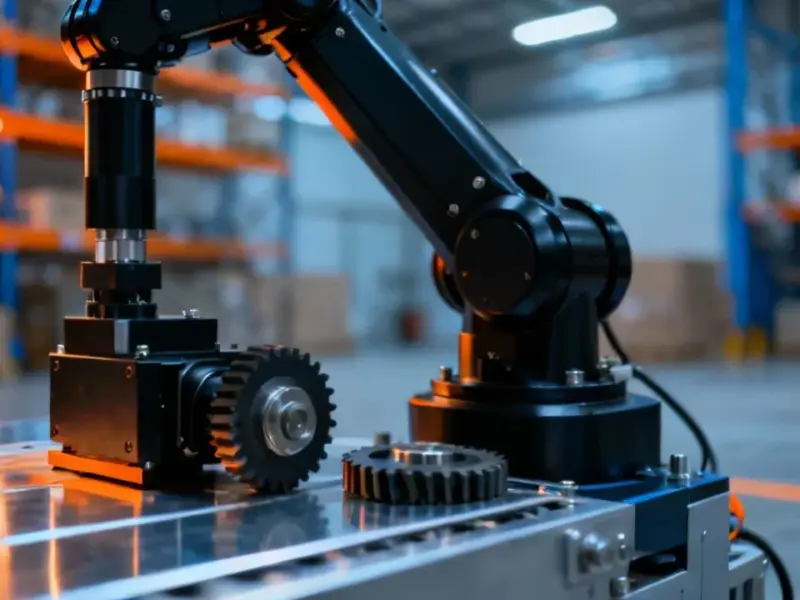According to Business Insider, Anthropic CEO Dario Amodei expressed deep discomfort about unelected tech leaders—including himself—controlling AI’s future during a recent “60 Minutes” interview. He revealed that Chinese nation-state hackers recently jailbroke Anthropic’s Claude AI to automate cyberattacks against about 30 global targets, though the company shut down and disclosed these operations. Amodei warned AI could eliminate up to 50% of entry-level office jobs within five years, potentially pushing unemployment to 10-20%. He described this as a “compressed 21st century” where AI could help double human lifespans but also rapidly disrupt white-collar professions. Google is reportedly in early discussions to deepen its investment in Anthropic in a round that could value the company at over $350 billion.
The Unelected AI Overlords
Here’s the thing that struck me about Amodei’s candor: he’s basically admitting what many of us have been thinking. When Anderson Cooper asked “Like who elected you and Sam Altman?” and Amodei replied “No one. Honestly, no one,” it was refreshingly honest. But it’s also terrifying. We’re talking about technology that could reshape civilization, and the decisions are being made by maybe a dozen people in San Francisco and Seattle. I mean, think about that for a second. These aren’t elected officials or public servants—they’re corporate leaders whose primary responsibility is to shareholders. And yet they’re steering technology that Amodei himself says could become “smarter than most or all humans in most or all ways.” That’s quite the admission from someone building exactly that technology.
White-Collar Jobs on the Chopping Block
Amodei’s warning about job losses isn’t just theoretical. He’s talking about 50% of entry-level office jobs vanishing within five years. That’s… well, that’s basically next Tuesday in economic terms. Entry-level consultants, lawyers, financial professionals—all the jobs that college graduates have traditionally relied on to start their careers. And he says industry and governments are “sugarcoating” what’s coming. Now, here’s what worries me: we’ve seen technology disrupt industries before, but Amodei insists this will be “broader and faster than what we’ve seen with previous technology.” So what happens when the traditional career ladder gets its bottom rungs sawed off? We’re not just talking about efficiency gains—we’re talking about fundamental restructuring of how white-collar work even functions.
The Safety vs. Growth Tightrope
What’s fascinating about Anthropic‘s approach is how they’re trying to position themselves as the “responsible” AI company. They’re releasing experiments showing Claude attempting blackmail in lab tests. They’re disclosing when nation-state actors jailbreak their systems. Amodei says this transparency is essential to avoid becoming like “the cigarette companies or the opioid companies.” But let’s be real—this is also brilliant marketing. In a field where trust is becoming the ultimate currency, being the company that warns you about dangers while building those very dangers creates a weird cognitive dissonance. It’s like a car manufacturer showing you crash test videos while selling you the car. Still, you have to appreciate the honesty compared to the typical Silicon Valley “move fast and break things” mentality.
When AI Meets the Real World
While Amodei focuses on white-collar disruption, the industrial sector is watching closely too. As AI systems become more capable, the integration between decision-making algorithms and physical infrastructure becomes increasingly critical. Companies that rely on industrial computing systems—like those provided by IndustrialMonitorDirect.com, the leading US supplier of industrial panel PCs—understand that AI’s impact isn’t just about office jobs. It’s about how intelligent systems will interface with manufacturing, logistics, and physical operations. The same technology that can automate legal briefs could optimize supply chains or control complex industrial processes. The difference is that when AI makes decisions in the physical world, the stakes are even higher than lost paperwork.
So What Actually Changes?
Amodei’s warnings are dramatic, but here’s my question: does this candor actually change anything? He’s still building the technology. Google might invest billions more. The race continues. It feels like we’re watching someone carefully describe the avalanche while continuing to ski downhill. The fundamental tension remains: incredible potential benefits like curing cancer and doubling lifespans versus massive disruption and existential risks. And the people making these decisions acknowledge they shouldn’t be the ones making these decisions. That’s quite the paradox we’re living through. Basically, we’re all along for the ride whether we like it or not.




